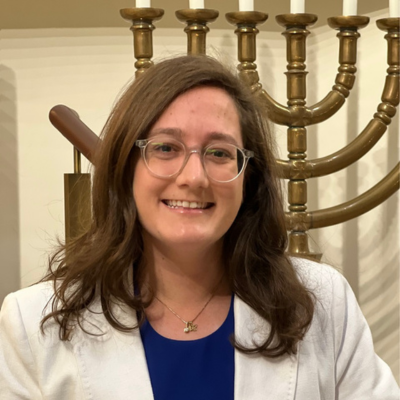Here in Toronto, we have an organization called Ve’ahavta. It is Jewish Toronto’s response to hunger, and my congregation recently made an agreement to send volunteers to assist in staffing their vans every second Thursday night. The vans drive food and supplies to different locations in the city where there is a known need, whether it is a shelter in Scarborough or an underpass downtown.
Since arriving at my congregation a year ago, one of the most meaningful experiences I have had was our clergy team taking the first shift to launch this initiative.
I have to admit: I was nervous; I hadn’t done anything like this before, and I didn’t know whom we would meet or what kind of situations we might get ourselves into.
Put differently, we stood at the precipice of the unknown, as did our ancestors in Parshat Sh’lach-Lecha, which opens by stating:
Send agents to scout the land of Canaan, which I am giving to the Israelite people; send one participant from each of their ancestral tribes, each one a chieftain among them. (Numbers 13:2)
Find more commentaries on Parshat Sh’lach-Lecha.
Rashi, in his comment on this same verse, teaches that God had already conferred with Moses back in the Book of Exodus to assure him that the land was good, and that indeed it was the land “flowing with milk and honey.” (Exodus 3:17)
We would have expected, then, that with God on their side, and with assurances from the Divine of the guaranteed success of the mission, the spies would return with glowing reports.
On that note, it is worth mentioning that the spies are deeply impressed with the land, gathering grapes and pomegranates and figs and bringing them back to Moses to display the fruitful bounty of the land. (Numbers 13:23-27)
Yet their fear of war with the Anakites, a nation stronger and tougher than the Israelites, sours the spies on their task. (Numbers 13:28) Ultimately, it took a push to overcome their fear. It took a leap of faith.
Thank God for Caleb, who proclaims: “We can surely do this!” (Numbers 13:30)
Thank God also for Joshua, who declares: “Do not be afraid!” (Numbers 14:9)
Find more commentaries on Economic Inequality.
Both the Ramban (13th century Spain) and Sforno (16th century Italy) conclude from this episode that if we want the soil of our land to live up to our hopes for it, we must hold to our faith — whether that is in God, in the land itself, or, in our case, the conviction of the cause(s) we are working for — and believe that we will reap the fruits of our labor. In other words, nothing good happens without a lot of hard work and effort, and the sheer will to turn dreams into reality.
With Ve’ahavta, I overcame my nerves with faith in my colleagues and our mission. And I’ll admit I didn’t anticipate how truly sweet these fruits would be.
It was profoundly powerful to be able to have such an immediate and tangible impact on people in need, despite my initial nerves. Our team walked away feeling grateful for the patience, openness, and strength amidst adversity we saw in those we served, and later, deeply thankful to arrive back home to a warm bed and food in the fridge.
To be clear, this is not to toot our own horn, but to highlight that, in spite of our nerves — in working with new partners, in serving new people, in venturing into unfamiliar territory — we are so glad that we took the step forward, in the name of something bigger than ourselves. As a result, the seeds are now planted for other groups within our synagogue to partake in this mitzvah.
May this (very) small step result in a giant leap.
Rabbi Eliza McCarroll has served as the Assistant Rabbi at Holy Blossom Temple in Toronto, Canada since June 2022.

